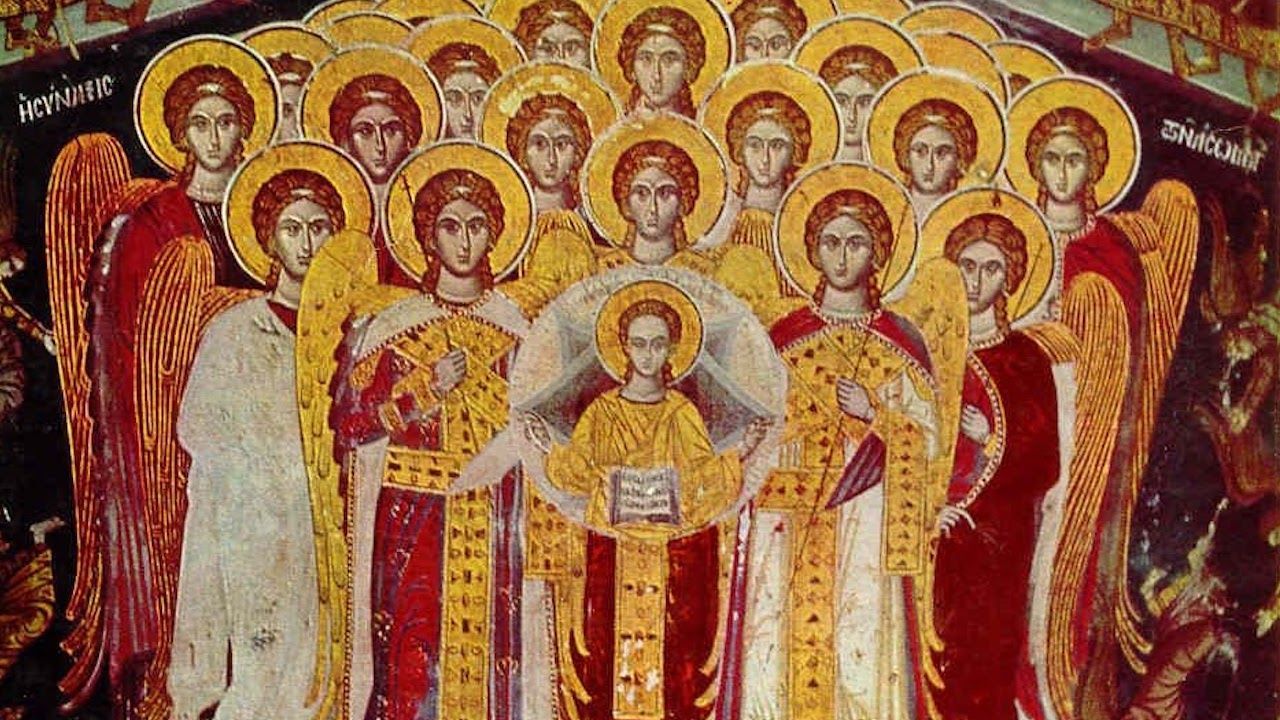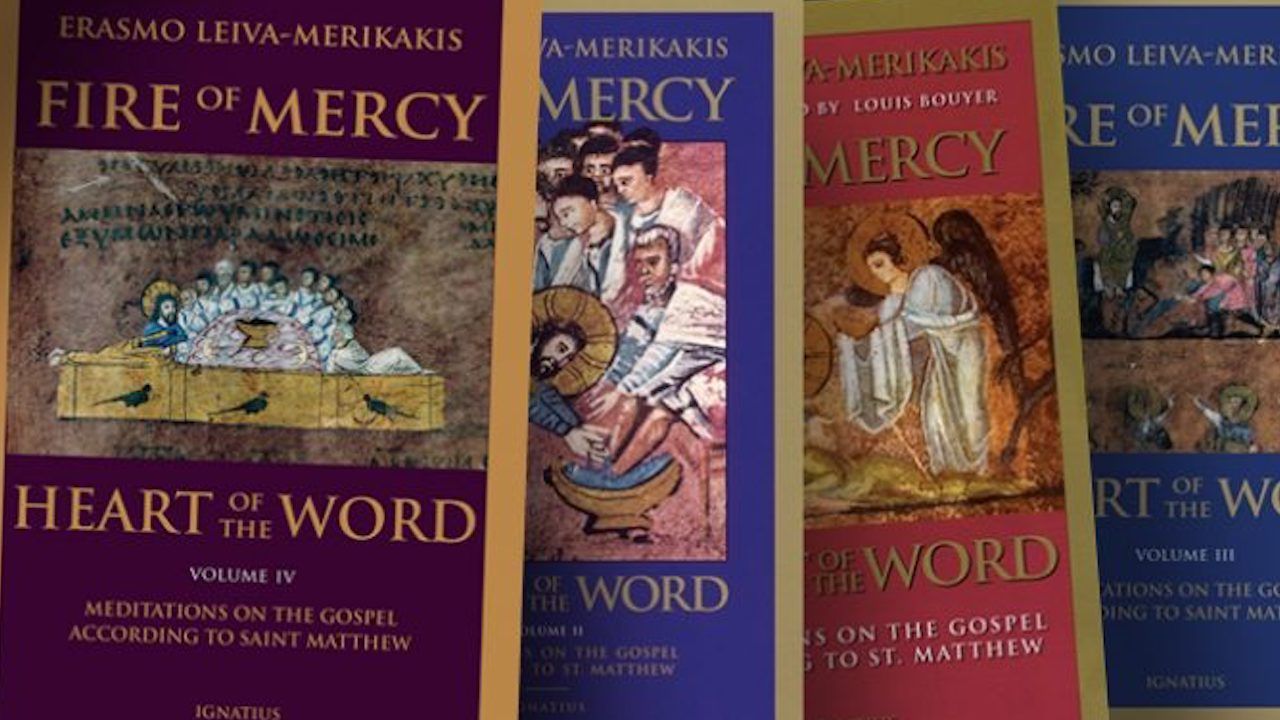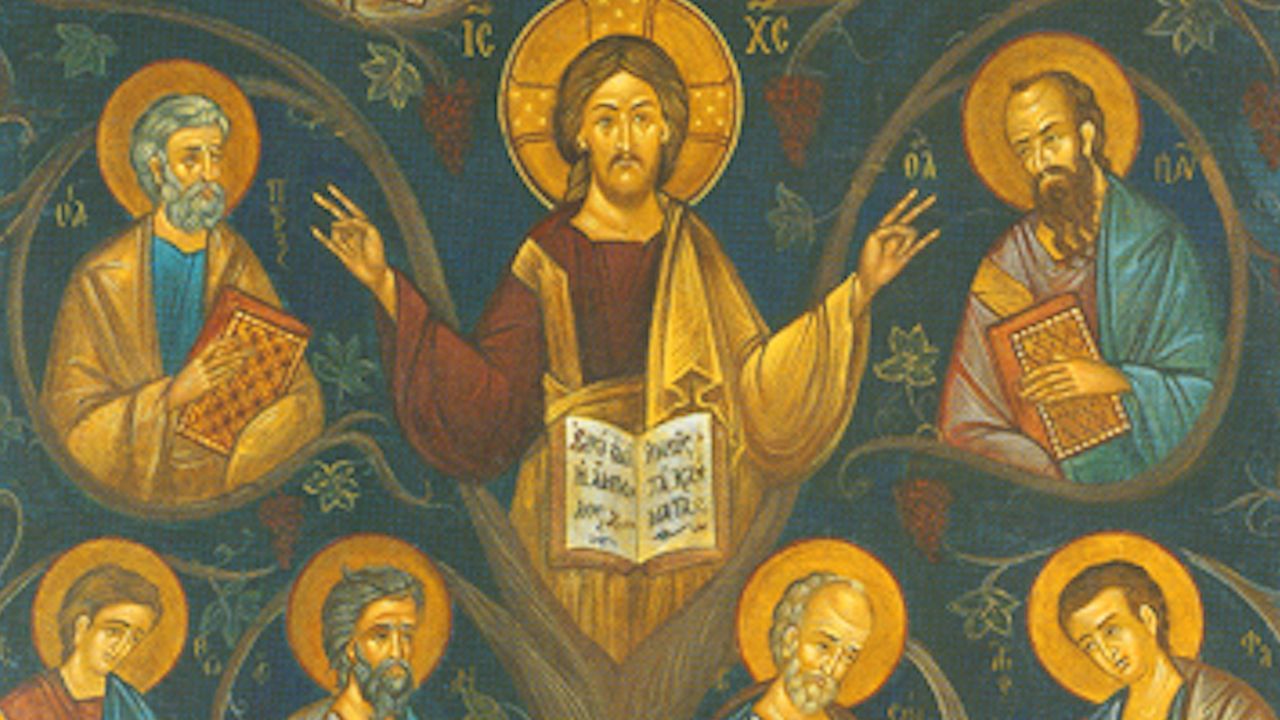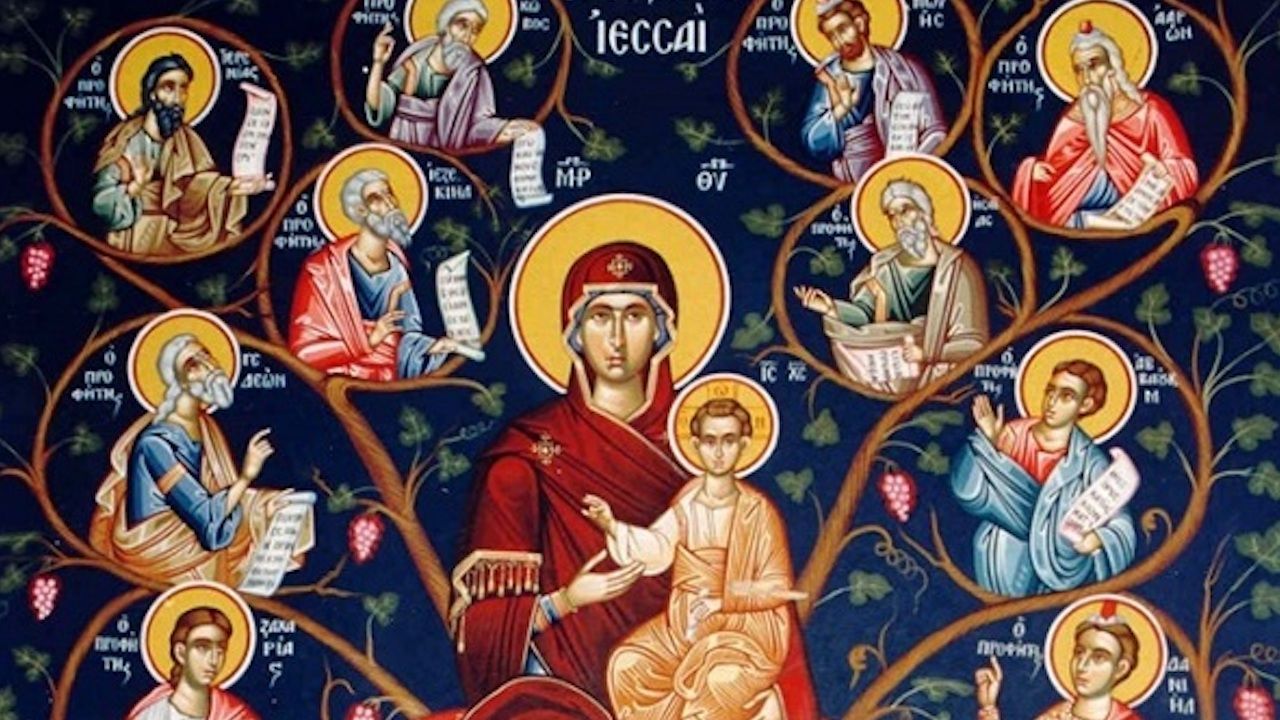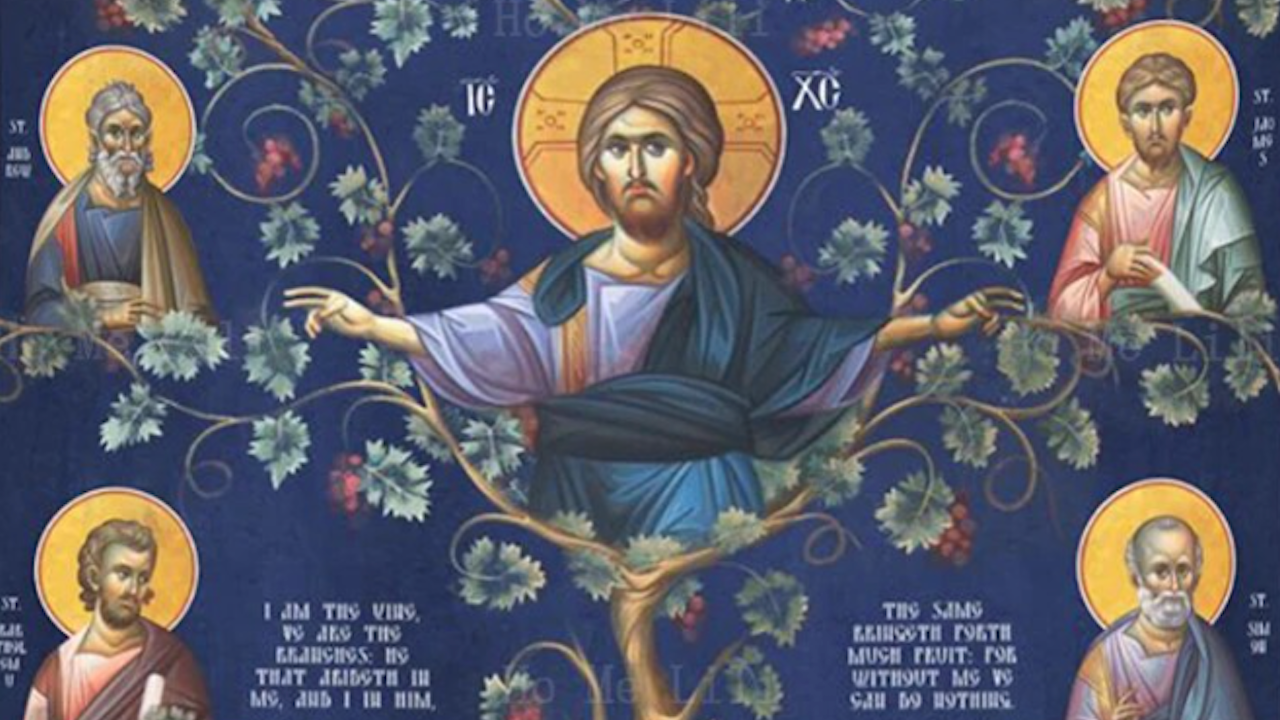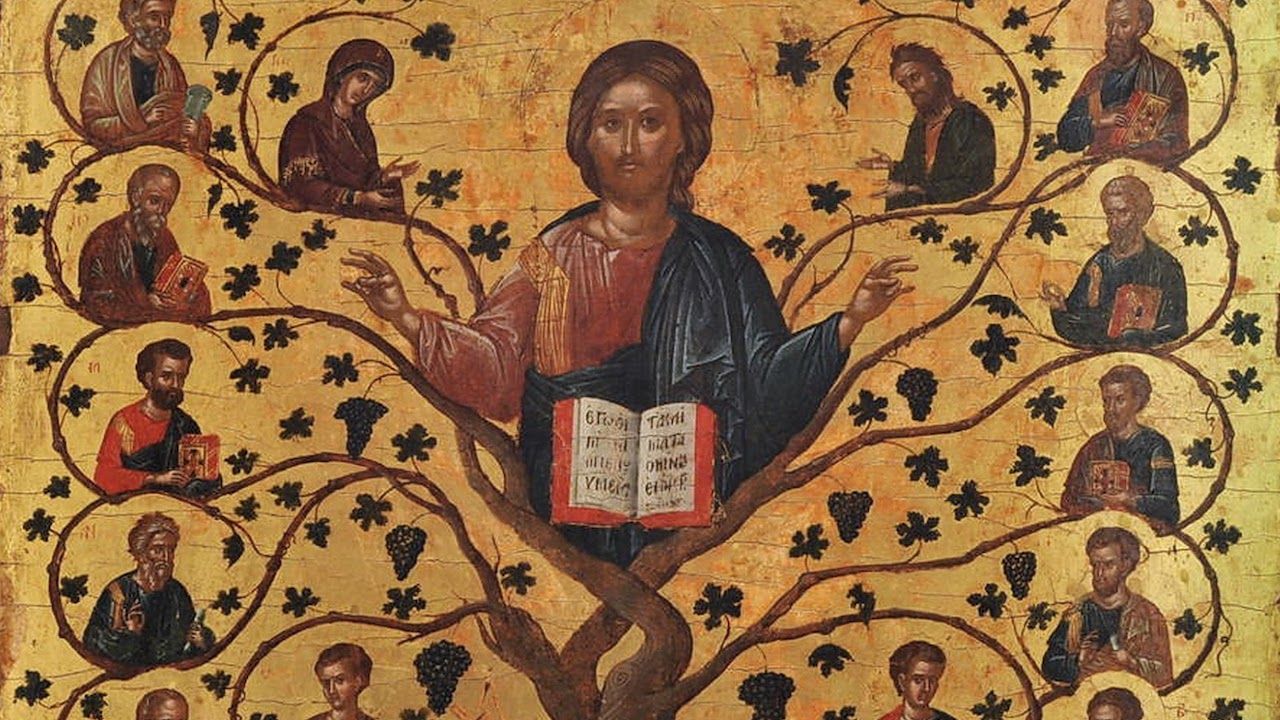AS EASTER
approaches, thoughts almost involuntarily focus on a subject which is so stubbornly minimized by secular media and anti-religious propaganda, but which in one way or another unavoidably stands at the center of human consciousness, the subject of death. For Christians, Easter is the feast of victory over death, “Trampling down death by death.” In past ages of Christianity’s outward triumph, when Easter was the self-evident focus of the year, when its joy and gladness were shared by people as their own foremost joy, this celebration and its meaning needed no explanation. But today, for someone who knows little or nothing of what occurs on Easter night, who has not experienced that peculiar and joyful thrill when out of the darkness comes the first proclamation of “Christ is risen,” Easter has of course ceased being what it was for centuries: the proof, witness, and symbol of genuine victory over the darkness, sadness and hopelessness of death.
Anti-religious propaganda likes to claim that one of the sources for religions is fear of death: people were afraid of death and so they invented immortality of the soul, the world to come, eternity, and so forth. The reality, of course, is that none of this exists. With physical death, human being utterly disappear and turn into nothingness. It has always surprised me how fiercely and with what inexpressible inspiration the propaganda fights for this nothingness. They make it seem that dissolving into nothingness is very good, just fantastic; while on the other hand, faith in eternity and immortality are somehow dangerous and must be combatted with all possible force. Yet it appears to me that even if one could prove death to be the absolute end, after which there is nothing else, that this finally brings little joy. So someone lives, studies, suffers, feels inspired, loves, and then it’s all gone, as if he were never here. And therefore, it would seem that man’s eternal, indestructible dream of immortality, this desire for immortality, is something good, noble, and worthy of respect. But no! Nothing, it seems, is so hated by anti-religious propaganda as the idea of immortality and faith in man’s eternity.
But let’s consider the subject rationally. First of all, religion should not be ashamed of being concerned with death, or even of being accused that fear of death gave birth to religion. Death is too important a human phenomenon to be ignored or dismissed, as in anti-religious propaganda, as if there really is nothing to think about here, and the latest five-year plan is much more important. Fear of death is part of being human, because people instinctively feel a kind of terrifying, one could say awe-inspiring, discord between the experience of one’s own self and the knowledge that this self must die and come to an end. No matter how often I’m told that death is a natural event, an obvious law of nature, my own self feels that its own death is not only unnatural, but contrary to nature. This discord gives birth to fear, because everything strange or unnatural is frightening. And in spite of all we are told of the naturalness of death, the fear connected with it is the best proof that everything here is not so clear and simple. It is natural for human beings to desire what is natural. But death, disappearance, dissolving into nothingness, “a black pit with spiders,” as Dostoevsky said, the deafening sink-hole of non-existence is something no one desires.
Everywhere, death always remains a mystery which human beings, insofar as they are human and not machines, robots, or ants, cannot but look and reflect upon. Attempts, therefore, to simply remove this subject and replace it with discussion about economics or politics not only fail, but testify to shallowness and narrow-mindedness. And when we’re told to overcome fear of death by working for future generations and their happiness, none of the propaganda recognizes how incredibly stupid this is. For if we accept that human tragedy is grounded in the awareness of our own death, then this tragedy continues also in the future, regardless of the material happiness of those famous future generations. If human beings are doomed to nothingness, then permit me to ask: how does this awful absurdity become any less absurd in the future with, let’s suppose, more justice and better home heating? But no philosophy, no ideology based on rejection of immortality and eternity can promise anything more. If nothingness is human destiny, then the proponents of so-called “existentialism” are much more logical and honest; they simply begin with the premise that human life is absurd and meaningless. And then, of course, what Leo Tolstoy said, “after a stupid life comes a stupid death,” has more truth than the endless plans and discussions by cheap ideologies of future happiness.
All this brings us to a simple affirmation: death is an extremely important subject for human beings to ponder and attempt to understand. In some profound sense, the whole of a person’s life revolves around solving the riddle of his mysterious end. Religion’s depth lies in its refusal to avoid the subject. But anti-religious propaganda hides from people the actual religious teaching about death, and particularly Christian teaching. It equates this teaching with pre-historic and primitive “animism,” and most importantly, it conceals the fact that Christianity’s true inspiration lies not in reconciliation with death, but in fighting and overcoming it.
*From The Church Year: Celebration of Faith – Sermons, Volume 2
(Crestwood, NY: St. Vladimir’s Seminary Press, 1994), 111-114.






